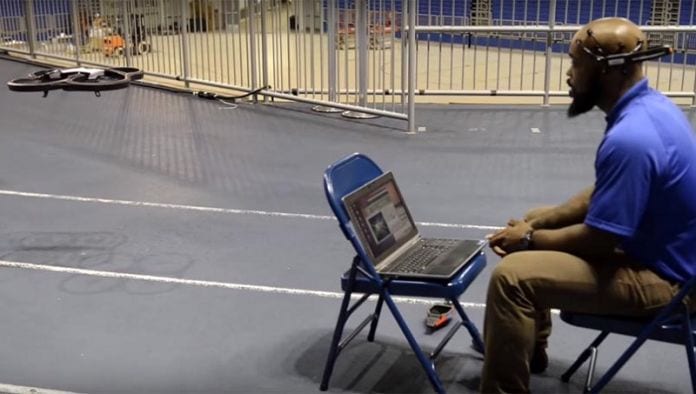Communication between the electroencephalogram and the drone was made by a brain-computer interface which enables a person to use brainwaves to control a computer or other device. The software could be used on a notebook connected to the headset and also the robot. contestant Daniel Royer, a mechanical engineering student at the university of Florida in the United States said that “You start thinking and you hear that motor kick up and you know it kind of kicks you into a different mental state so you have to focus”. According to the developers, concentration and focus required to control the devices. Pilots should think of something like “move forward”. So, electroencephalogram at the head of each user captured the electrical activity of the brain at that time, the software interpret the signals and send commands to the gadget. The chairman of the Computer and Information Science and Engineering Department at the University of Florida in the United States, Professor Juan Gilbert said that “They had been doing research on BCI and decided to connect it to drones for the race. The implications are far beyond the race. It’s fascinating that it’s the first of its kind and it’s the future.” Unlike science fiction movies, the drone race was nothing exciting, since the devices were moving very slowly. The big draw was the way in which technology was being used there. With the advance technology, it is possible to imagine, for example, that an amputee could control their robotic prosthesis only with the mind. Check out the video where researchers explain how the technology works:-
Δ



